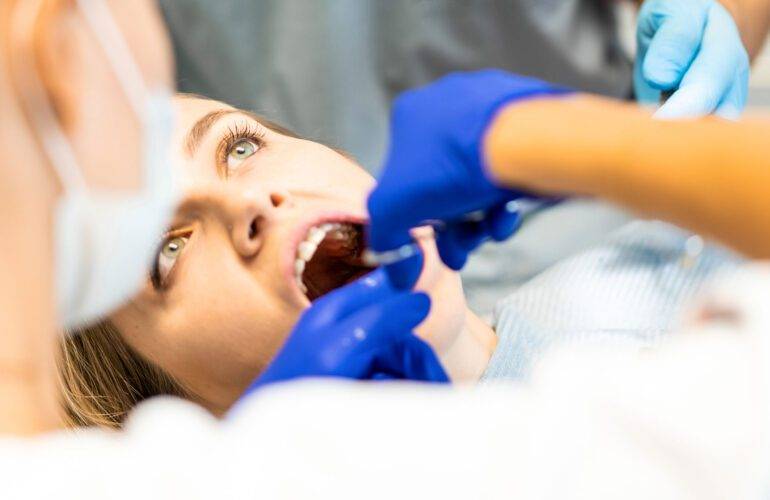Extractions
Others Oral Surgery Services
Tooth Extractions: A Necessary Step for Maintaining Oral Health
Tooth extraction is a common dental procedure that involves the removal of a tooth from its socket in the jawbone. While preserving natural teeth is always the priority, extractions are sometimes necessary to address various dental issues and prevent further complications.
Why Are Tooth Extractions Needed?
- Severe Decay: When a tooth is extensively decayed and cannot be restored with a filling or crown.
- Infection: If a tooth infection cannot be resolved with root canal therapy, extraction may be necessary to prevent the spread of infection.
- Gum Disease: Advanced periodontal disease can cause loosening of the teeth, necessitating extraction.
- Impaction: Impacted wisdom teeth (third molars) that cannot properly erupt may need to be removed to prevent pain, infection, and crowding.
- Orthodontic Treatment: Some teeth may be extracted to create space and facilitate the proper alignment of the remaining teeth during orthodontic treatment.
Types of Tooth Extractions:
- Simple Extraction: A straightforward procedure to remove a tooth that is visible above the gum line, typically performed under local anesthesia.
- Surgical Extraction: A more complex procedure for teeth that are not easily accessible, such as impacted wisdom teeth. This may require incisions in the gum and removal of bone, and is often performed under sedation or general anesthesia.
What to Expect During a Tooth Extraction:
- Anesthesia: Local anesthesia is administered to numb the area and ensure a pain-free experience. Sedation may be used for more complex extractions or for patients with anxiety.
- The Procedure: The dentist or oral surgeon will use specialized instruments to loosen and remove the tooth. For surgical extractions, incisions and bone removal may be necessary.
- Stitches: In some cases, stitches may be placed to aid in healing.
Aftercare and Recovery:
- Bleeding: Some bleeding is normal after an extraction. Bite on a gauze pad to control bleeding and promote clot formation.
- Pain Management: Over-the-counter or prescription pain medication can help manage discomfort.
- Swelling: Apply an ice pack to the outside of the cheek to reduce swelling.
- Oral Hygiene: Gently rinse with warm salt water to keep the extraction site clean. Avoid vigorous rinsing or spitting for the first 24 hours.
- Diet: Stick to soft foods and avoid using the extraction site for chewing.
- Follow-Up: Attend any scheduled follow-up appointments to ensure proper healing.

